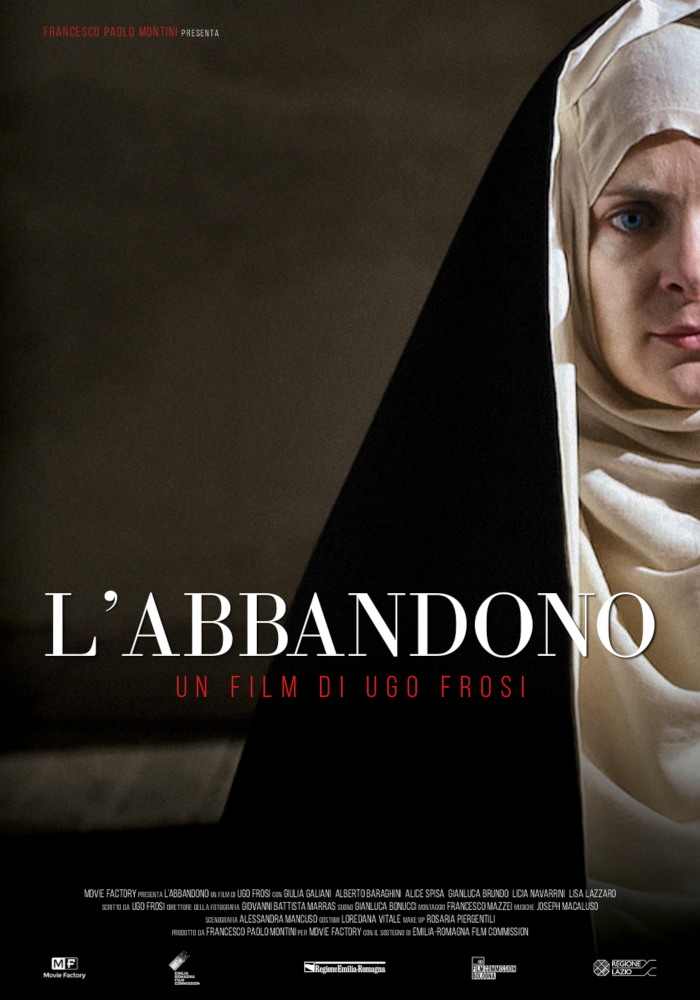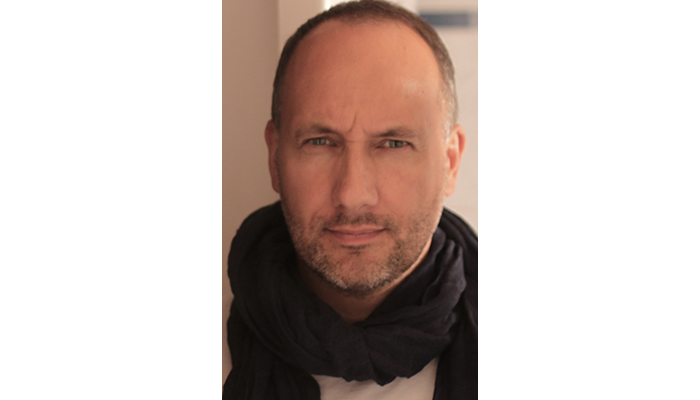
Italy, 2017, 112’
Regia / Direction: Ugo Frosi
Sceneggiatura / Screenplay: Ugo Frosi
Produttore / Producer: Francesco Paolo Montini
Interpreti / Cast: Giulia Galiani, Alberto baraghini, Alice Spisa, Licia Navarrini, Sonia Coppoli, Lisa Lazzaro, Gianluca Brundo.
Fotografia / Cinematography: Giovanni Battista Marras
Musica / Music: Joseph Macaluso
Scenografia / Set Designer: Alessandra Mancuso
Montaggio / Editor: Francesco Mazzei
Produzione / Producer Company: Movie Factory
Distribuzione / Distributor: Movie Factory
Contatti: movie_factory@hotmail.com
Italy, second half of the 18th century. A young religious is sent, as Vicar of the bishop, in a cloistered monastery, to investigate the true nature of the rumors concerning a nun accused of scandal and heresy. After questioning the first witnesses - including a nun that was a novice at the time of the facts - the Vicar understands that, in the silence of the cloister, something much more serious and disturbing than he thought happened. When he finally confronts Sister Irene, the religious guilty of having upset the whole monastery, the young man will face a woman enigmatic and seductive, which in a tight interrogation will push to deny every dogma and every current morality. The meeting with the nun will drag the young religious into an unexplored territory, a world opposed to the one known by him, even reaching to make him doubt his own faith, of the very meaning of his existence. A series of tragic facts will eventually force him to make a choice.

Director's note: On June 25, 1781, the Bishop of X writes to Pope Pius VI a letter with worried tones about some events occurred in the monastery of ... where "two religious women, besides brazenly professing quietism, deal with the invention of men, and Trinity, and incarnation, and sacraments and eternities ... "
The bishop will then send his vicar to the monastery to deepen the nature and nature of the monasterytruth of the facts and conduct an official interrogation of the nuns and witnesses. Starting from this remote and unknown historical event, a story of scandal and suspicion heresy occurred centuries ago in the enclosed walls of a convent, which I had almost by chance met in an eighteenth century text, I decided to develop a subject with curiosity initial investigation of the conflict between the nature of power and the desire for freedom, ineliminable and irreducible in the fund of the human being. The story and the epoch in which the story was set then recalled a very suggestive cinematic precedent such as that of the film "La Religiosa" by Jaques Rivette, based on the novel of the same name by Denis Diderot. The screenplay, based on the memories of Bishop Scipione de Ricci and on the precious complete transcription of the interrogation, in the dramaturgical fiction takes the moves from the human adventure of the vicar and his meeting, in the silence of the convent, with the mysterious Sister Irene. Meeting destined to put in crisis and upset every conviction of the young ecclesiastical. Perturbing personality, endowed with subtle charisma and seduction, Sister Irene, in a completely male cosmos like that of the Church, leads a strenuous and solitary battle in supporting her own reasons and in the firm refusal to be brought back to a discipline that now only feels like a constriction and violence towards one's own nature. Sister Irene, however, can well represent the voice of many of the religious and mystical ones, that for several centuries, have been silenced in the closed cloisters, accused of madness or witchcraft, and finally expelled from every official story. The journey of the Vicar, in the film, finally reveals itself as a journey to discover one dimension of desire and vital creativity supported by the force of eros, or if we want to use the Jungian terms, as a real process of individuation, culminating in the integration of the female dimension, Anima, with the masculine and rational one of the Animus. In fact, if in my first feature film we talked about Thanatos, we are talking about the opposite, creative force, Eros.

Ugo Frosi was born in Rome in 1969. He graduated with honors in Literature at the University La Sapienza of Roma, with a thesis on the theater of the seventeenth century. He study screenplay with the Oscar winner Ugo Pirro. In 1999 he moved to New York, where he graduated in directing at the New York Film Academy. In 2004 he wrote and directed the short film "Calos cai Agatos" which received the recognition of the national cultural interest of the Ministry of Cultural Heritage. In 2015 he wrote and directed "L'ospite", a feature film winner of the cinema fund Tuscany region. "L'Abbandono" is his second feature film.